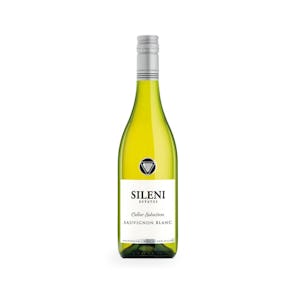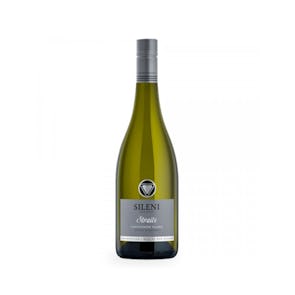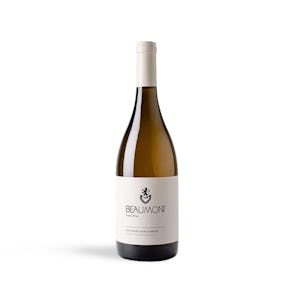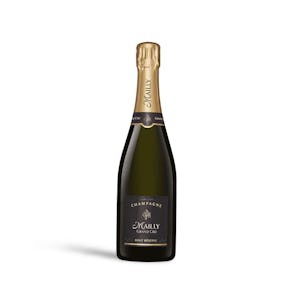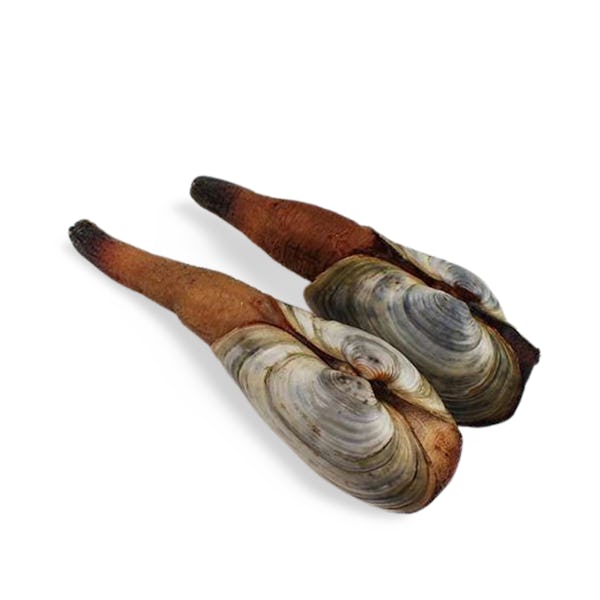
Hon Mirugai (Black Geoduck) from Hokkaido
A little sweet, a little briny
TASTING NOTES FROM THE CURATOR
These wild or tenned Hon Mirugai are from Hokkaido, Japan, and are sashimi-grade. Their shells have a black and white color, and they are made up of two major parts: the siphon or neck, and the mantle or breast. The siphon is the part that hangs out of the shell, and the mantle is the meat inside the shell.
Black Geoduck have a delicate texture, but with a nice crunch, and a slight chewiness. They are much crispier than their white counterpart, and are far rarer, too. In fact, they’re considered the premium geoduck in many restaurants for their exceptional flavor, and their rarity. They have a strong flavor, clear and a little sweet, a little briny.
PREPARATION AND PAIRINGS
Hon Mirugai, or Black Geoduck, is popularly used for sushi and sashimi. The siphon is usually the part used for sushi. These large clams can also be steamed or grilled, or used in chowders, ceviche, and pasta.
NOT A DUCK
Despite it being spelled “geoduck,” it is actually pronounced something like “gooey duck.” It comes from the word, “gweduc,” in the Lushootseed, the language spoken by the Nisqually, a Native American tribe from western Washington. The word means both “dig deep” and “genitals,” and is likely both a reference to how the clam burrows deep into the seafloor, and to its appearance. The name became “geoduck” when Europeans later arrived and reinterpreted both its spelling and pronunciation.
Storage Instructions
Store your fresh shellfish in the fridge, keeping the temperature between 0 to 5°C. Place it in a bowl with ice at the bottom—or if you have the room, place ice in a large bowl, then place the shellfish in a slightly smaller bowl to sit in the large one—and cover everything up with a wet paper towel. To enjoy them at their freshest, please consume them within 48 hours.

